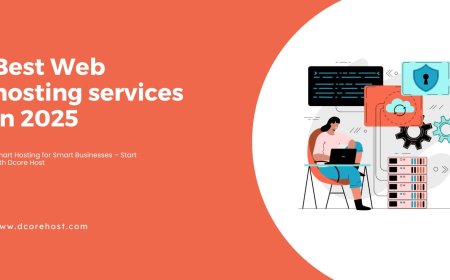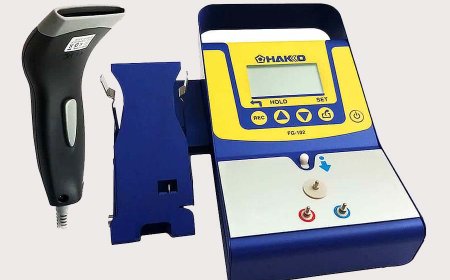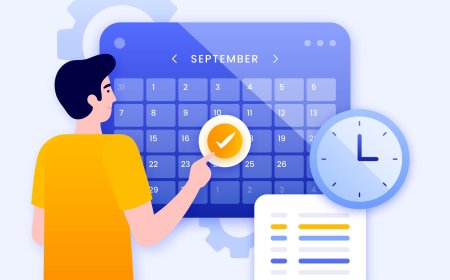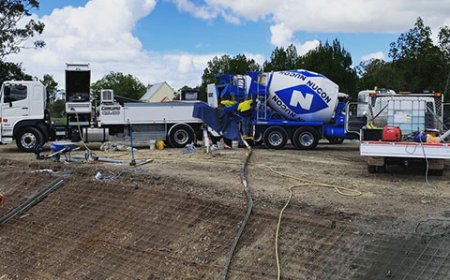Essential Parenting Tips for the First 2 Years: Finding the Best Pediatrician in Greater Noida
Discover essential parenting tips for your baby’s first 2 years and learn how to find the best pediatrician in Greater Noida for your child's health and growth.

The journey of parenthood begins long before you hold your baby in your arms. For parents in Noida and Greater Noida, having access to quality healthcare professionals and evidence-based parenting guidance is essential for navigating the crucial first two years of your childs life. This comprehensive guide offers valuable parenting tips while highlighting the importance of partnering with healthcare experts like Dr. Deepali Jain, a leading pediatrician, and Dr. Madhvi Rawat, a respected gynecologist, both practicing at Prakash Hospital in Greater Noida.

Why the First Two Years Are Critical for Child Health Development
The first 1,000 days of lifefrom conception through age tworepresent a critical window for child health development. Your babys brain forms over a million neural connections per second, shaping future learning and development.
Research from Harvards Center on the Developing Child shows that early experiences literally shape how the brain builds its architecture. Positive, nurturing interactions with caregivers dont just make babies happythey support healthy brain development and establish the basis for lifelong health.
For parents in Greater Noida, understanding these developmental stages while having access to quality healthcare resources ensures your child receives the support they need during this formative period.
Finding the Best Pediatrician in Greater Noida for Your Childs Care
Finding the best pediatrician in Greater Noida should be a priority for expectant parents or those who have recently moved to the area. A skilled pediatrician serves as your partner in monitoring your childs growth, addressing health concerns, and providing guidance on nutrition, safety, and developmental milestones.
Dr. Deepali Jain at Prakash Hospital is recognized as the best pediatrician in Greater Noida by many families. With specialized training in pediatric care, Dr. Deepali Jain offers comprehensive services including:
-
Well-baby check-ups and immunizations
-
Growth and development monitoring
-
Guidance on nutrition and feeding
-
Management of common childhood illnesses
-
Developmental screening and early intervention when needed
Schedule a prenatal visit to choose a pediatrician whose care approach fits your family. This early relationship is key to your child's health.
The Role of the Best Gynecologist Doctor in Greater Noida in Your Parenting Journey
While pediatricians focus on your childs health, having access to the best gynecologist doctor in Greater Noida is equally important for maternal health before, during, and after pregnancy. Dr. Madhvi Rawat at Prakash Hospital provides specialized care for women throughout their reproductive journey.
Postpartum care is a critical yet often overlooked aspect of the parenting journey. Postpartum check-ups with a gynecologist help manage physical and emotional changes after childbirth:
-
Physical recovery from childbirth
-
Breastfeeding challenges
-
Postpartum depression or anxiety
-
Family planning options
-
Nutritional needs for nursing mothers
A mothers well-being directly impacts her ability to care for her newborn, making the relationship with a trusted gynecologist an essential component of successful early parenting.
Why Prakash Hospital is the Best Pediatric Hospital in Greater Noida
Prakash Hospital, the best pediatric hospital in Greater Noida, provides quality care for children from birth to adolescence.
What sets Prakash Hospital apart as the best pediatric hospital in Greater Noida:
-
Specialized pediatric departments with child-friendly environments
-
Advanced diagnostic and treatment facilities
-
24/7 emergency pediatric care
-
Multidisciplinary approach involving specialists when needed
-
Preventive care programs and immunization services
-
Support services for parents, including lactation consulting
Having a reliable pediatric hospital nearby provides peace of mind for parents, knowing that expert care is available should their child experience a health emergency or require specialized treatment.
Essential Parenting Tips for Infants: The First 12 Months
The first year of life brings rapid changes and development. Here are evidence-based parenting tips for infants that can help you navigate this exciting but sometimes overwhelming period:
Understanding Baby Development Milestones (0-6 Months)
During the first six months, your baby will progress from reflexive movements to more purposeful actions. Key milestones include:
-
2 Months: Beginning to smile at faces and briefly self-soothe
-
4 Months: Laughing, reaching for toys, and holding head steady
-
6 Months: Rolling over, sitting briefly without support, and showing interest in food
Every baby grows at their own pace. Regular visits to a top pediatrician in Greater Noida ensure healthy development.
Nutrition Foundations for Healthy Growth
The American Academy of Pediatrics recommends:
-
Breastfeed exclusively for the first six months, if possible.
-
Introduction of solid foods around six months while continuing breast milk or formula
-
Starting with iron-rich foods like fortified cereals, pureed meats, or beans
Introduce one new food at a time, waiting 35 days to check for allergies. Ask your pediatrician for guidance.
Infant Sleep Safety and Establishing Routines
Sleep is essential for infant development and family well-being. To promote infant sleep safety:
-
Always place babies on their backs to sleep
-
Use a firm surface in a safety-approved crib or bassinet.
-
Keep soft objects, loose bedding, and toys out of the sleep area
-
Maintain a comfortable room temperature (68-72F)
-
Consider room-sharing without bed-sharing for the first 6-12 months
Establishing consistent bedtime routinessuch as bathing, reading, and cuddlingcan help signal to your baby that its time to sleep. While sleep training approaches vary, most pediatricians recommend beginning to establish more predictable sleep patterns around 4-6 months.
Stimulating Early Brain Development
Simple, everyday interactions significantly impact brain development:
-
Talk to your baby frequently, describing what youre doing
-
Read books with colorful pictures and varied textures
-
Sing songs with hand movements
-
Provide tummy time when baby is awake and supervised
-
Offer age-appropriate toys with different sounds, colors, and textures
These activities support language development, motor skills, and cognitive growth during this critical period.
Effective Tips for Parenting Toddlers: The Second Year
As your baby enters the second year, new challenges and opportunities emerge. Here are practical tips for parenting toddlers that address common concerns during this stage:
Supporting Physical Development and Motor Skills
Between 12-24 months, most children:
-
Begin walking independently
-
Climb on furniture and stairs
-
Scribble with crayons
-
Stack blocks and manipulate smaller objects
To support these developments:
-
Create safe spaces for exploration
-
Provide push-pull toys that encourage walking
-
Offer opportunities for climbing in supervised settings
-
Introduce simple art materials for fine motor development
Regular assessment of these skills during check-ups with the best pediatrician in Greater Noida helps ensure your child is meeting appropriate milestones.
Nutrition Transitions for Toddlers
Nutritional needs evolve during the second year:
-
Transition to whole milk (if not breastfeeding)
-
Establish regular meal and snack times
-
Provide healthy foods from all groups for balanced nutrition.
-
Allow toddlers to self-feed and explore different textures
-
Limit sugary drinks and processed foods
Many toddlers become selective eaters during this stage. Continue offering a variety of healthy options without forcing consumption, and consult with your pediatrician if you have concerns about your childs growth or nutrition.
Managing Toddler Behavior and Setting Boundaries
The toddler years often bring challenging behaviors as children seek independence while still needing security:
-
Set consistent, simple limits and follow through
-
Offer limited choices to provide a sense of control
-
Use positive reinforcement to encourage desired behaviors
-
Redirect attention rather than saying no constantly
-
Establish predictable daily routines
Remember that tantrums are a normal part of development as toddlers learn to manage big emotions with limited language skills. Responding with calm consistency helps them develop emotional regulation over time.
Language Development and Communication
Language skills typically explode during the second year:
-
12 months: First words emerge
-
18 months: Vocabulary of approximately 20-50 words
-
24 months: Two-word phrases and following simple instructions
To support language development:
-
Read together daily
-
Narrate your activities and label objects
-
Sing songs with actions
-
Respond to your childs attempts at communication
-
Limit screen time, which can delay language development
If you notice your child not meeting language milestones, discuss your concerns with your pediatrician, as early intervention can be very effective.
Monitoring Your Child Health Development Through Regular Check-ups
Regular pediatric check-ups are essential for monitoring child health development.
During the Visit, the pediatrician will:
-
Track growth parameters (height, weight, head circumference)
-
Assess developmental milestones
-
Administer recommended immunizations
-
Screen for common health issues
-
Address parental concerns and questions
These regular check-ups allow for early identification of potential issues and provide opportunities for parents to receive personalized guidance on nutrition, safety, and development.
Creating a Safe Home Environment for Exploration and Learning
Safety becomes increasingly important as babies become mobile. Essential safety measures include:
-
Installing safety gates at stairs and doorways
-
Securing furniture that could tip over
-
Covering electrical outlets
-
Storing medications, cleaning supplies, and small objects out of reach
-
Using appropriate car seats for every trip
A safe space lets children explore freely, boosting curiosity and growth.
The Importance of Self-Care for Parents
While focusing on your childs needs, remember that parental well-being directly impacts your ability to provide nurturing care. Self-care strategies include:
-
Accepting help from family and friends
-
Connecting with other parents for support and perspective
-
Taking short breaks when possible
-
Maintaining basic health habits (nutrition, sleep, physical activity)
-
Seeking professional support if experiencing persistent sadness, anxiety, or overwhelm
Both Dr. Deepali Jain and Dr. Madhvi Rawat at Prakash Hospital recognize the importance of supporting parents well-being as part of comprehensive family care.
Conclusion: Building a Foundation for Lifelong Health
The first two years of your childs life set the stage for future development and well-being. By implementing evidence-based parenting practices and partnering with healthcare professionals, you provide your child with the best possible start.
For families in Greater Noida and Noida, having access to quality healthcare resources like Prakash Hospital and specialists such as Dr. Deepali Jain and Dr. Madhvi Rawat ensures that both children and parents receive the support they need during this critical period.
Remember that while parenting brings challenges, it also offers immeasurable rewards. Trust your instincts, seek help when needed, and cherish these early, foundational years.
For more information about pediatric and maternal healthcare services at Prakash Hospital in Greater Noida, contact their appointment desk to schedule a consultation with their expert team of healthcare professionals.




































































